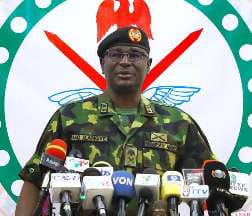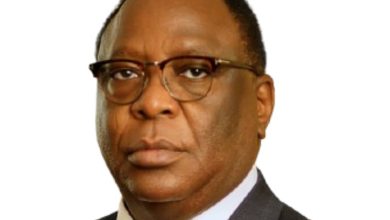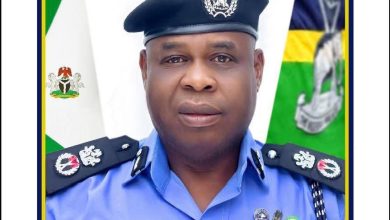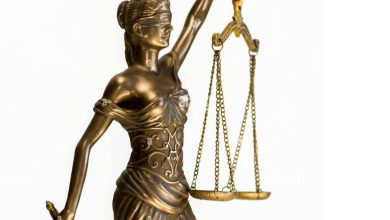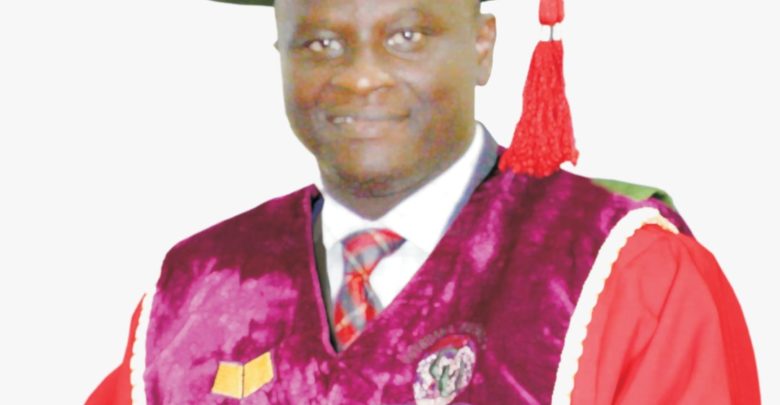
. . .The Media Are At The Centrality Of The Survival Of Every Nation
The 21st Edition of the Annual Conference of African Council for Communication Education with the theme, “Digital Media Civic Engagement and Global Platform” holds in Abuja from Tuesday – Friday, October 22-25, 2019. Piloting the affairs of the eminent group as president is Professor Nnamdi Tobechukwu Ekeanyanwu. A professor of international communication, Department of Communication Arts, Faculty of Arts, University-of-Uyo, Ekeanyanwu is an Prof outstanding scholar. His teaching career has also taken him to University of Bedfordshire, Luton, England; Covenant University, Ota, Ogun State, and others with several publications to his credit.
In a no-holds-barred exclusive interview with the editorial team of the Crystal Express, the Imo State born professor spoke with a great deal of erudition and dissected issues to every detail.
Professor Ekeanyanwu speaks on the mission of the conference of African Council for Communication Education, the problem of Nigeria’s media, the challenges facing the country and other salient issues. Excepts
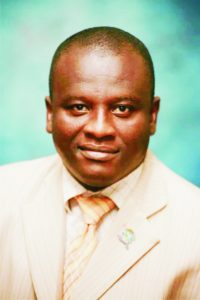
Let us meet
I am Professor Nnamdi Ekeanyanwu, Professor of Strategic and International Communication, University of Uyo. I am also a scuzzy fellow, I did my fellowship at Institute of Communication, School of Journalism, Ohio University. Currently I am the national president, African Council for Communication Education, a body of all academics, scholars, educators in higher institutions all over Africa and in the diaspora and media practitioners with headquarters in Nairobi, Kenya. I head the Nigeria chapter of the council. Every year we organise an international conference where we bring all communication scholars to a location to discuss pressing national and international issues to see how communication will interface to help address such issues and this year will be the 21st edition of that conference and will hold at the National Open University of Nigeria, Abuja Campus.
The conference will focus on digital media, civic engagements and global platforms. We are managers of new media and are looking at how positively the new media will engage our people’s civic engagements, to keep them politically alive. In Nigeria for instance, our major problem is leadership and leaders are taking from the followers. So if leaders subject themselves to the people and we are better equipped to make informed decisions, definitely political participation will improve. And we make better choices when our leaders know that they are responsible to the people and things will change for good. So we will be looking at how social media will improve civic education especially in politics and other kinds of grassroots mobilization, taking note of what is happening globally.
The lead speaker will be coming from United States of America. He is Professor Bruce Musvero of the University of Osborn in Atlanta, Georgia and a good friend. He researches in the area of digital media and ICT. He will be the lead speaker at the conference. All professors in the Nigerian media space will be part of the conference billed to start on October 22, 2019, which is the arrival date. By 23rd we will have the opening ceremony in which we will have all the people that matter in the media to partake and moments after that, people will get involved in various syndicate groups to discuss, analyse and take positions on different aspects of the Conference. The grand total of the discussions will come in form of communiqué which will explain how digital media can effectively enhance information and participation in election. The United States of America is a typical example of where the digital media is effectively employed in their political space and which also enhanced their democracy. We should by now go beyond voting and ensure that our votes count. Civic engagements is about the discourse, the participation enlightening and getting people informed and digital media comes handy. We are getting to the point where even a woman in the village is carrying a smart phone and may only be limited to receiving calls with it but the conference is set to change the narrative in that regard.
Who and who are eligible to partake in this conference?
First are the media educators, media practitioners will also be there to ensure wide publicity of this conference, the citizens will also come for knowledge impartation, after which we will push out a communiqué. When we talk about civic engagements, we are talking about the citizens and making decisions that affect them. And part of what the conference intentions is for participants to be properly informed and to further transfer knowledge. There will also be governmental agencies and political parties whose role is to get people mobilized. Even though we are in a clime where votes don’t count, the trend will soon change for good.
Before the last election, I was part of a group assigned to carry out survey on the expected change in government in 2015 and 1 was assigned the South East and I thought it was an opportunity to have a new beginning in our political journey. However I was shocked to note that all our efforts were not considered in the end. Politicians, being what they are in Nigeria, still did what they wanted not minding public opinion.
Ours is to ensure that more people are taking away from the pit of ignorance to the realms of knowledge.
Nigeria is our country and we need to get to the level where people ask reasonable questions on how they are administered to avoid the emergence of dictatorship. In Hong Kong recently, people insisted on what they wanted and government bowed to them. That’s what we hope to achieve in the country.
Does it worry your group that the media which the masses rely upon for information experience high “mortality rate” in Nigeria? Will your conference address that problem.
Well, that will not be a major part of the conference but we may have that discussed exhaustively at the syndicate groups. But it will be a major issue at the conference we will soon have in which we will look at the survival of the print media beyond 2030. The issue of media survival is a very serious matter. I have done a special study on the economics of decline in the media industry. The problem did not start from Nigeria, it started overseas but they have surmounted it. The media owners in Nigeria are living in self denial. I tried through research to know their circulation strength and patronage level of most Nigerian newspapers and discovered that it is a state secret and those who attempt to give you make available falsified figures to keep impression of relevance.
This information is important for developmental purposes but it is like a state secret here. It is very difficult for media firms to give out the true position of the strength of their circulation and patronage. Some may not have accurate figures owing to the manipulations between the distributors and vendors so such data are not available. We are really worried about the sustenance of the media in Nigeria. It is my primary constituency and I belong to the school of thought that prefers newspapers to government, because you cannot run a government without the media. The media are at the centrality of the survival of every Nation. I don’t also belong to the group of people that believe that the media will serve as a social service under government control. Government must not run everything including the media for you to survive. Sadly the media have been invaded by quacks. Today if you ask a question on who is a journalist, I bet you a lot of people will not be able to define it. The bloggers have invaded the media space, writing and posting all manner of things. Recently we did a conference in which a question about if the media is actually a profession arose, because there are strict entry qualification for every serious profession.
But the media is one anybody gets into with so much ease. Is it actually a profession? Can you enter the hospital and start treating people as a doctor because you are versatile in science?. So could the media be a profession in a case an Ibibio major graduate becomes a bureau chief in one of the newspapers in Akwa Ibom State? An economics graduate will also justify his case that because he is a graduate in that field, he will man the economic desk in the media establishment. Today you have all sorts of quackery in the system which appears to be dictated by hunger. We must do everything to ensure that the media industry survives; Nigeria must not be an isolated case.
And how do we get the media industry to ensure only professionals are admitted into its rank?
Let me use the Nigerian Institute of Public Relations (NIPR) as an example. I stopped being a member of NIPR and they have done everything to bring me back to no avail. This is a body set up by law but for whatever reason, we have not achieved the policy guidelines as half of those who practice public relations in the country are not qualified. I am a researcher and can give you figures. So non-professionals invade it because there is no enforcement of the guidelines. Can anybody call himself a chartered accountant without passing through ICAN or can any company employ anybody as a chartered accountant without showing evidence of ICAN certification. So why will people be calling themselves public relations executive without proper certifications.
The same way we have lots of people calling themselves journalists without basic entry requirement. The menace is also spreading to the academic system in the universities where cases of lecturers sleeping with students are emanating which I described as sad and shameful. I am even ashamed as a lecturer since all of us are now seen as suspects. The Nigeria Union of Journalists (NUJ) and the Nigeria Press Council have failed in that regard the same way the NIPR has failed. By now we should have had a standardized requirement for one to function as a journalist. The problem here is that once you call for registration, people will start lamenting that it is censorship. To me it is about knowing who is a practicing journalist to help sanitize the system.
A situation anybody carries pen and paper in the name of journalism, anything goes. If we want to recover the media industry from the quacks, the NUJ, the Nigeria Press Council and Guild of Editors must come together and set strict guidelines as entry requirement for journalists. I recall that when the plan was mooted initially, those who started the institution without basic qualifications and succeeded stood against it. But outside the major entry qualification for new people, we could agree on form of training for those who are already in the system. The Institute of Journalism was set up for those who don’t have degrees to go and have some form of training. Today am aware that the generation that stood against the initial sanitization plan have all left and we hardly have those who are practicing on the premise of “on the job” training.
They did well obviously but are all retired. There must be a form of training and entry qualification to practice as journalist and a body must admit you with basic entry qualification to be known and addressed as a journalist, this is a profession. You cannot buy a black suit because you can afford it and join the Nigeria Bar Association. So people cannot just carry pen and paper and turn journalists over night. That means we are wasting time here training people who could not find a space to practice their profession because of touts. Most of the so-called journalists’ output is appalling. If about 30% of those I have taught journalism have ended up in the industry, it would have been better now; most of them have been forced into other things out of the bad condition of the practice.
Back to your Abuja Conference, will the implementation of the outcome see the light of the day and not mere talk shop?
That has remained my biggest frustration and challenge. All these years we have been talking and writing yet no reasonable actions from the relevant authorities. I thank God for digital media’s help in creating awareness and making people more conscious of events around the world. Again we can’t stop talking or writing. We have this adage that you either communicate or perish. we cannot stop. So we are bringing the stakeholders together and after that ensure that the communiqué is well publicised through the media. In the same vein, we have journals so there is always a book that is focused on each year’s conference. The events of the last three years are well documented in the journals. So if we can’t change those who are now unchangeable, then we have students coming behind us and must put these points in black and white for them to see and act. If they chose the wrong path, fine but let it be that they were taught what is right. The job of parents is to set the right path for their children and the kid’s choice is to toe that path. We hope that one day somebody rises and start the implementation of these ideas to give way to the new Nigeria of our dream. An average politician in Nigeria has widely traveled and it is one of their hobbies. Travelling is not only for luxury but learning. What marvels me is their refusal to learn from the experiences and things they see aboard. It is shameful that most of them pass through sophisticated airports in other countries to land in what we call airports in Nigeria without thinking of improving them. Even the airports in South Africa are far better than the best we have in Nigeria. If I am in their position, I will never allow things to remain this way in the country.
Are you saying that Nigeria’s problem is basically leadership?
That is the beginning. It is the reason for the civic engagement so that when people are involved, then no sooner our votes will count. And if it doesn’t count, the people will show resistance to the fraud before it gets to the court. I experienced option A4 and we are conversant with the reality it portrays and you can’t lie about its outcome. But we can’t go back to option A4 no matter how good it is; someone should not vote and lose their life. Nigeria is about 200 million people and with all the manipulations in the last election the number they brandished as people that voted for our current leaders is not near our population. For instance in the whole of Imo State with over four million people the Governor was elected with about 250,000 votes.
Are you saying that what we had in the last election was a sham?
A sham in some aspects but majorly poor participation. The last election did not represent the majority views of the masses of this country.
So how do we get out of it?
Through civic engagements and mobilization. INEC spends so much money on voter education and mobilisation but it ends in private pockets. How many people was INEC able to move from 2015 election to 2019? Don’t forget that in the last four years more 17 year old persons became 18 years to vote and so on. Voter mobilisation isstill negative and that shows that votes don’t count in Nigeria. The dangerous nature of the whole exercise is that returning to option A4 may be suicidal, many people who stand on a particular candidate’s line may be victims of attack. It is also possible to see gun men spreading bullets on people on a particular line if it is working against their pay master. It is possible here. In all parts of the world, the voters are protected from any harm. In several years from my studies and research on the US election not a single life has been lost and the one that emerges US president also became the “President” of the world. But ordinary local council election in Nigeria, both human beings and baboons die. Check out how many persons that lost their lives in our last election. We don’t even have the figures. Option A4 is good but dangerous for a country whose only surviving business is politics.
Why do you say business?
Nigerian politicians have turned politics to business, the same applies to religion. They enter political terrain for survival and make their personal interest paramount. It is difficult to see a politician whose interest is the people and purely to serve selflessly.
That is the reason someone finished eight years tenure as governor and wants the senate seat and even ministerial seat. It is all about personal interest. I lost interest in the president when I saw the people he surrounded himself with. The Bible says show me your friend and I will tell you who you are. You can’t tell me you don’t smoke when all your friends smoke or that you are not a womanizer when all your friends are womanizers. So he cannot surround himself with known thieves and say he is fighting corruption.
Are you describing the fight against corruption as a sham?
Most Nigerians know it is a sham but the fact remains that the little that has been done is okay. It is important that someone is pursuing it even when it is selective.
Through studies, have you been able to find out the percentage of participation during the last national election in the country?
I won’t be able to give you specific data but can conjour an answer from what happened. INEC is the custodian of such information. They are in custody of the actual votes and manipulated votes so which data do you expect from me when I have visited polling booths and saw the number but what was declared finally was far above the number on ground? Is it the actual data that I got as a researcher in the field or the one that was announced, recognized and in custody of the INEC? The only fact that cannot be contravened is that we still have less than 50% of the actual voters still participating in elections. In advanced countries, participation gets to 70%, 80% and 90% but here you have less than 50% of registered voters participating and it is taking the country to nowhere.
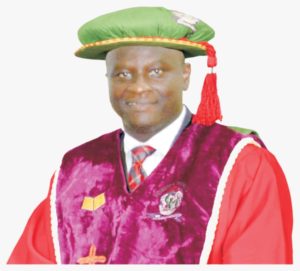
This is one of the indicators of Third World nations. In advanced economies, their recurrent expenditure does not go beyond 30% of the budget. The rest is for development. We should congratulate the president for even recognizing that it is one of our problems.
The estacode is an issue because you are paying it to someone who is already employed. That is why the parliamentary system with Ministers appointed from within appears better. We have situations in this country where ex-governors serving as senators are taking pensions in their states and enjoying full salaries in the senate. Duplications of some offices here and there.
The federal government and Presidency which is one here have several information managers and spokes persons, sometimes it’s just jobs for the boys. We have to scale down the number of ministries. We don’t need all of them. Sadly a governor in Nigeria woke up one day and created Ministry of Happiness and he is one of the persons the people of that state thought has so much to offer. As if that was not enough, he started molding statues of people all over the state at a terrible cost in a state without any presence of industry.
There appears to be a spirit in the Nigerian politician that appears to make them remain Nigerian politician no matter the background they are coming from. The law on federal character prompting the duplication of ministers and ministers of state is killing the country. Here in Nigeria, a senator’s package in a month/year is higher than of the United States’ president. That means the Nigerian senator earns five times more than a US senator. In many countries what parliamentarians earn is just their sitting allowance. People are sent to the parliament to make contributions based on their already established pedigrees not jobless people. Nigeria is the only country senators take full salaries and still run their business full time. In other climes no lawmaker does a full time job or gets salaries except governors and the president. We don’t need the two houses of the National Assembly except to increase the number of thieves.
Even in Britain, the parliamentarians are on sitting allowance. Education is the future of any country, sadly the two chambers of the National Assembly budget is higher than the budget of education in the entire country. The budget of 109 persons is greater than that of about 100 million people’s desire to acquire of education or the other from the primary to the tertiary level. We don’t need this kind of National Assembly. I am known to speak my mind. During a recent conference on hate speech put together by the Federal Ministry of Information, I told them that our challenge is overlooking the root cause of the problems and facing the manifestation. Hate speech comes when people are angry and eager to express themselves. The same cannot happen when people are happy.
The root of confusion in Nigeria is the amalgamation of 1914. In other countries, people come together to agree to be a country or nation. But Nigeria has no such records. For administrative convenience and those ones we are yet to be told why the British brought these distinct people together. I have said severally that until the country restructures, there will be no progress. Some of the issues we are discussing are what is needed to be discussed at the restructuring conference.
As a nation with unique characteristic we must discuss if we need the two Houses of the National Assembly and so many other things. We have persons who are bigger than the institutions, a president who is a law unto himself. Once a party is in power they crush the opposition. Opposition parties cannot be sustained without government patronage. In a true federal system of the government and democracy even the powers of the president is limited in some instances. The country must be restructured to remain one and I believe in one united country.
There must be justice, equity and fairplay among every component of the country. It is sad when for the purpose of quota system, we sacrifice brilliance and performance. We have a student from the south who scored 295 to read medicine here but was dropped for someone with 220 from the north. The difference is the place of birth or origin. How do you expect such a person to be a contributor to the Nigeria of our dream? Obi and Musa must have equal rights. You don’t promote someone from the north in an establishment against his superiors and better qualified persons from the south because of quota system.
These are some of the root causes of anger and hatred in the country and Nigeria must restructure to get it right. We must encourage healthy competition to excel and develop at our own pace. The truth is that the problems of the people in Mubi, Adamawa State are different from the problems confronting people in Uyo, Akwa Ibom State. So I don’t even see the need for persons legislating for both of us from Abuja. They might need a grazing land while farmland is all we need here and these are realities we must acknowledge. We must allow for a sovereign national conference. Our leaders will come together and decide the fate of the country. Otherwise we are sitting on a keg of gun powder and it will explode soon.
In the North, we have moved away from terrorism to banditry and as the leaders continue to impoverish the youths, one day majority of the youths will protest. Less than 10% of the graduates turned out every year get jobs and we cannot continue to pile up such number and expect to sleep with our own eyes closed. There is hunger in the country. The country will be heading to serious crisis if these problems are not addressed.
I want to tell you that the smaller African countries are more worried about our problems because the refuge problem it will generate will chase them out of their own country.

